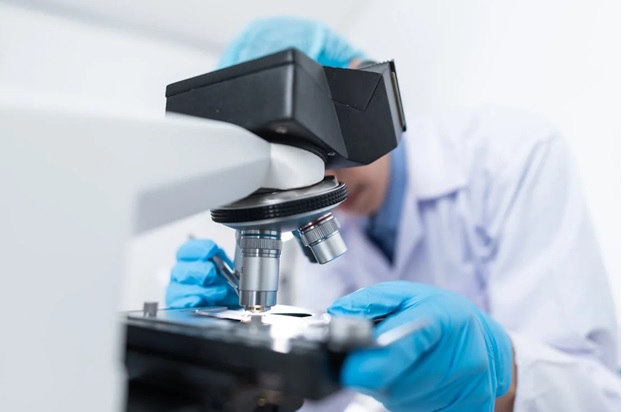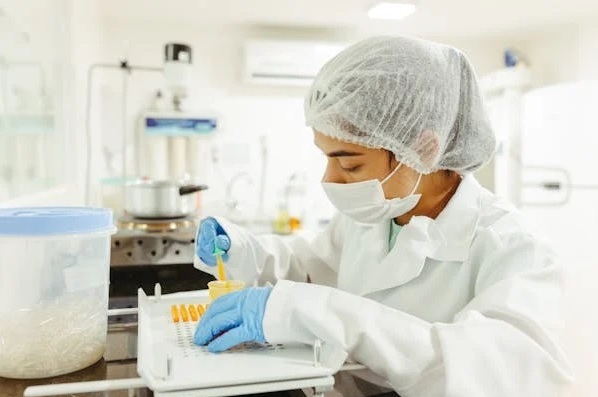Biology Laboratory Equipment You Need for Research
11th Nov 2024

Biology laboratories are crucial environments for scientific discovery, ranging from fundamental studies of cells and tissues to complex research on ecosystems and organisms. To perform experiments, researchers use a wide range of specialized equipment.
When you step into a biology research lab, the vast array of equipment can be overwhelming. Yet, each piece plays a crucial role in the scientific discoveries that drive advancements across industries.
From biotechnology to pharmaceuticals, and even agriculture, these tools are the backbone of research and development (R&D). But the list of biology laboratory equipment often includes instruments that assist in processes such as sample preparation, measurement, analysis, and imaging.
And these different types of biology laboratory equipment commonly used across various fields of biological research include the following instruments and equipment, all of which are available at HiTech Trader.
Microscopes
Microscopes are among the most fundamental tools in any biology lab. They allow researchers to observe organisms, cells, and molecular structures that are too small to be seen with the naked eye. There are several types of microscopes, each suited for different purposes:
Light Microscopes
These are the most commonly used microscopes in biology labs. They employ visible light to illuminate specimens and allow magnification up to about 1,000x. Light microscopes are ideal for viewing live cells, tissues, and small organisms such as bacteria.
Fluorescence Microscopes
These microscopes use fluorescence to visualize specific components within cells. They are particularly useful in cell biology and molecular biology research for tracking proteins, DNA, and other cellular structures using fluorescent markers.
Electron Microscopes
For ultra-high magnification and resolution, electron microscopes are used. They employ beams of electrons instead of light to achieve magnification up to millions of times, revealing intricate details of cellular and molecular structures. Two main types are transmission electron microscopes (TEM) and scanning electron microscopes (SEM).
Confocal Microscopes
These provide high-resolution, three-dimensional images by focusing light on a single point within a specimen and eliminating out-of-focus light. Confocal microscopy is widely used in imaging complex structures like tissues and organs.
Centrifuges
Centrifuges are essential pieces of equipment used in many biology laboratories to separate different components of a sample based on their density. They work by spinning samples at high speeds, generating a centrifugal force that causes heavier components to settle at the bottom and lighter components to remain at the top.
Microcentrifuges
The smaller versions of standard centrifuges, used for spinning small tubes (1.5 ml or less) at high speeds. They are commonly employed in molecular biology for tasks such as DNA extraction and protein isolation.
Ultracentrifuges
These are capable of spinning at extremely high speeds and are used for separating subcellular components, such as organelles, or even for fractionating proteins and nucleic acids.
Autoclaves
Autoclaves are essential for sterilizing laboratory equipment, culture media, and biological waste. They use pressurized steam to kill bacteria, viruses, and other microorganisms, ensuring a sterile environment for experiments. Autoclaves are particularly important in microbiology, molecular biology, and clinical laboratories where contamination needs to be prevented.
Incubators
Incubators provide controlled environmental conditions for growing and maintaining biological samples such as cell cultures, tissues, and microorganisms. They control parameters such as temperature, humidity, and gas concentration, which are crucial for maintaining the optimal growth conditions for living organisms.
Standard Incubators
Used for a wide variety of biological research, especially microbiology and cell biology, to grow bacterial cultures, yeast, and other microorganisms at specific temperatures.
CO2 Incubators
These are specialized incubators used in mammalian cell culture, maintaining a controlled atmosphere with a set CO2 concentration to mimic physiological conditions.
Spectrophotometers
Spectrophotometers measure the amount of light absorbed by a sample at different wavelengths. This is particularly useful in quantifying DNA, RNA, proteins, and other biomolecules in solution. There are several types of spectrophotometers used in biology research:
UV-Vis Spectrophotometers
These measure absorbance in the ultraviolet and visible light spectra. They are widely used in molecular biology to assess the concentration of nucleic acids and proteins.
Fluorescence Spectrophotometers
These measure the fluorescence emitted by samples, which is useful for detecting small amounts of specific biomolecules, such as proteins labeled with fluorescent tags.
PCR Machines (Thermal Cyclers)
Polymerase chain reaction (PCR) machines are used to amplify DNA sequences in molecular biology research. Cycling through different temperature phases allows researchers to facilitate the denaturation, annealing, and extension of DNA strands, enabling the production of millions of copies of a specific DNA fragment. PCR machines are vital for tasks such as genetic testing, pathogen detection, and cloning.
Freezers and Refrigerators
Proper storage of biological samples is crucial for maintaining their viability and preventing degradation. Freezers and refrigerators are standard equipment in biology labs, used for storing reagents, DNA samples, enzymes, and cell lines at low temperatures.
Ultra-low temperature freezers operate at temperatures as low as -80°C and are essential for long-term storage of sensitive biological samples, such as RNA, proteins, and cell lines.

Find Your Biology Laboratory Equipment at HiTech Trader
Biological research plays a pivotal role in modern life, and for many researchers, the tools you choose make all the difference. The various types of equipment used in research labs, particularly in industries such as biotechnology and life sciences, contributes to the advancement of medical and scientific knowledge that can improve modern life..
Biology laboratory equipment plays a vital role in advancing scientific research across various fields. Each piece of equipment is critical for conducting experiments, analyzing data, and uncovering new knowledge.
But you don’t need to buy the newest tools to add to your laboratory tools. We offer the best laboratory equipment at more affordable rates but still offers the high performance and precision you expect from new equipment.
For more than 40 years, HiTech Trader has helped researchers and scientists, enabling them to explore the complexities of life with ever-greater precision and depth. Visit us now and find the equipment you need for your lab needs.
